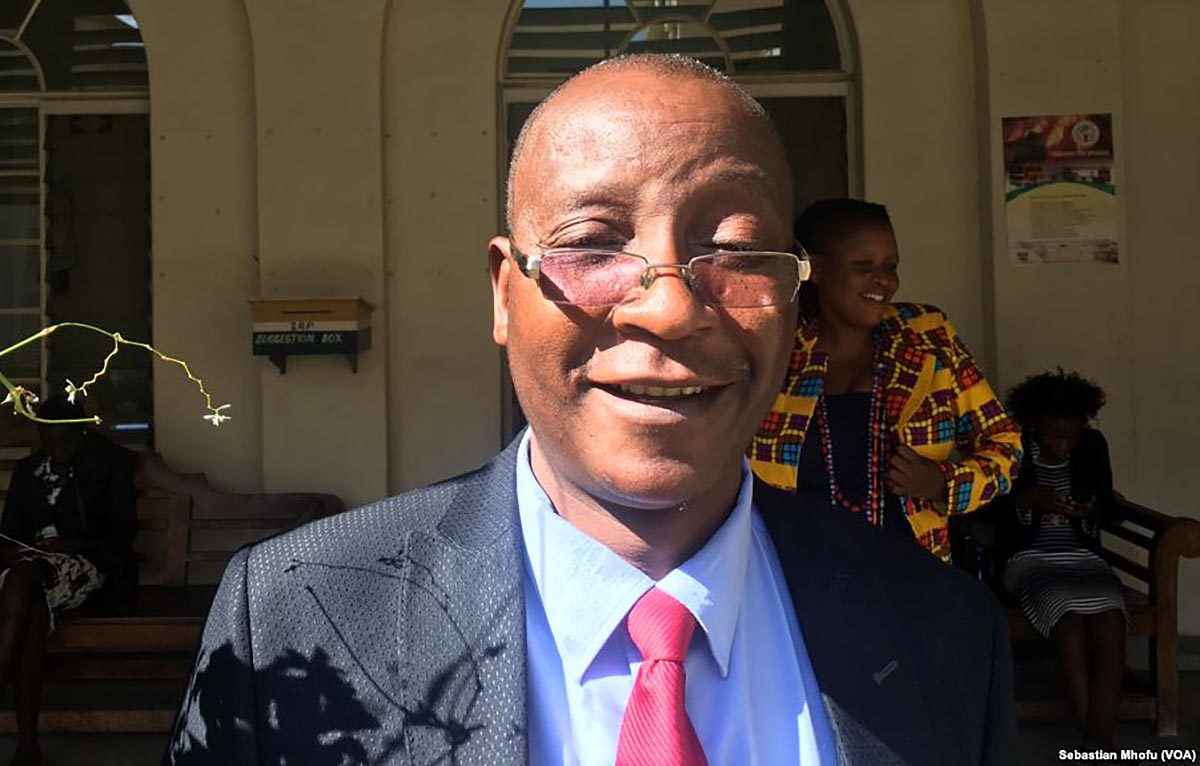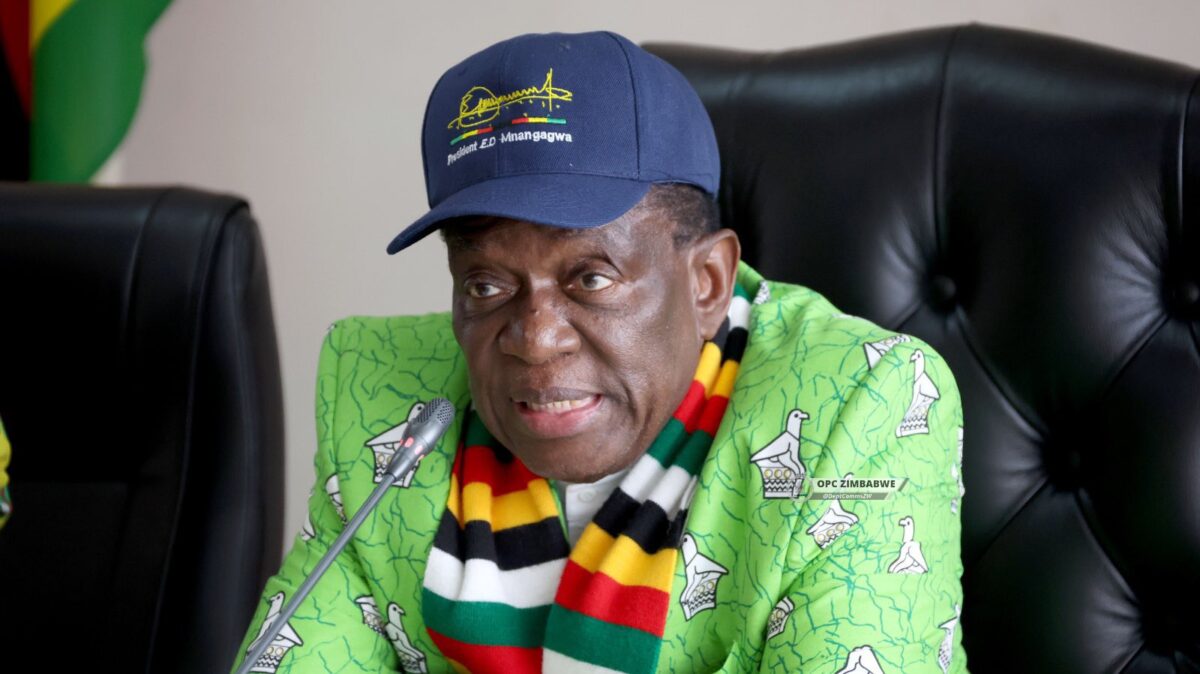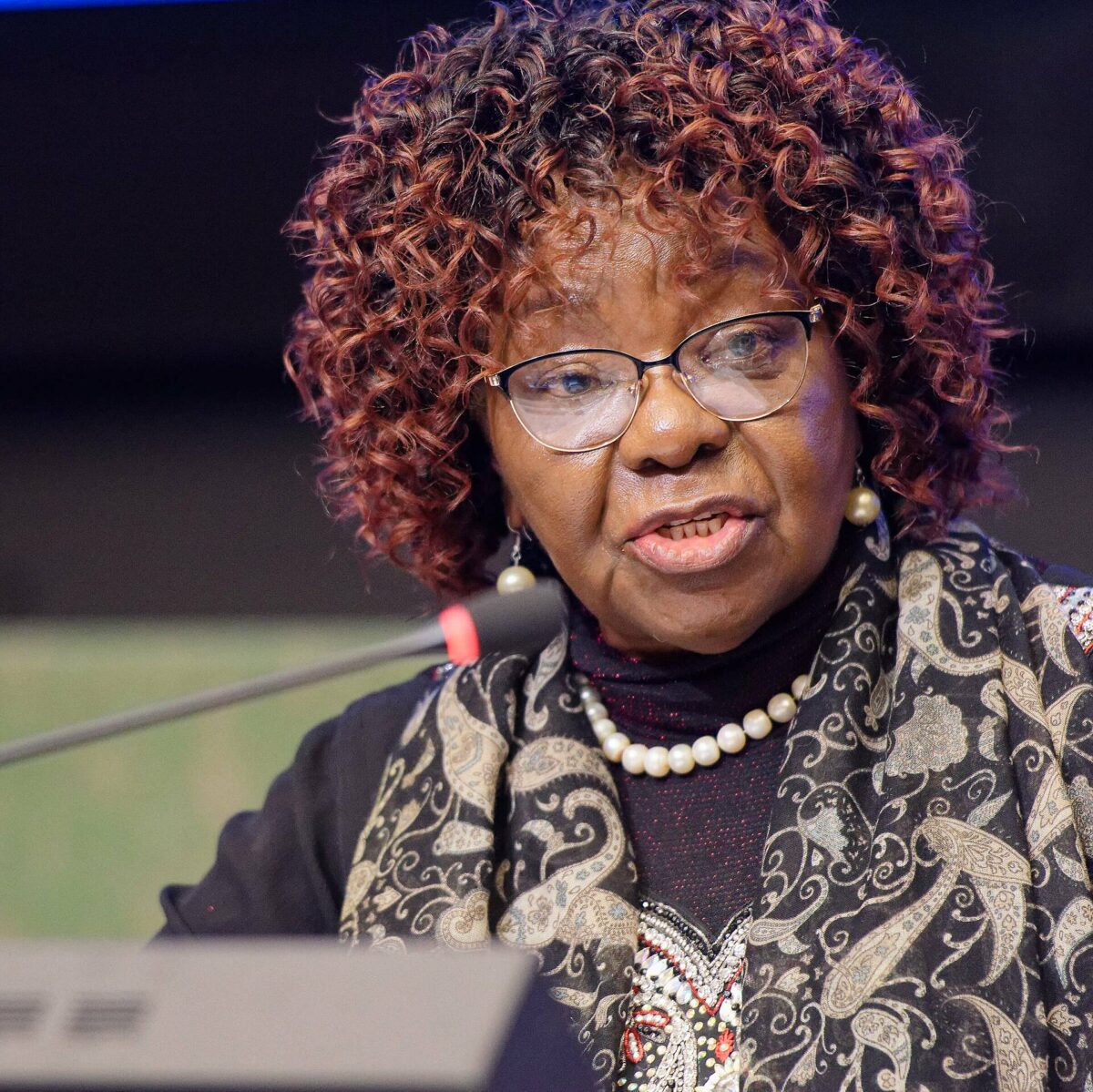HARARE – Justice Minister Ziyambi Ziyambi accused a Senator of being a tribalist on Tuesday for claiming that President Emmerson Mnangagwa was marginalising Matabeleland and women by failing to appoint a new vice president.
Zimbabwe has not had a second vice president since March 1 when Kembo Mohadi quit following a sex scandal.
Khaliphani Phugeni, an MDC-T Senator for Bulawayo, drew Ziyambi’s ire during a debate on the Constitutional Amendment No 2 Bill.
Phugeni argued that scrapping the “running mate” clause by which a president is elected on the same ticket as his two deputies would deny Zimbabweans principled vice presidents, as well as block the path for minorities and women to assume the presidency in the event of death or resignation of the incumbent.
“The issue of the running mate does speak to the issue of gender balance. You will recall we had a vice president in this country in the name of Joice Mujuru. She was unceremoniously removed from her position by a very powerful president who later lived to regret that action but it was too late,” Phugeni said in the Senate.
“It also speaks to the issue of the historically marginalised people of Matabeleland. We had a vice president here by the name of (Phelekezela) Mphoko. When the military intervention happened (in 2017), he had to run for his life and when he came back he was, like Mujuru, removed from power and we have never heard of him.
“The former vice president of the country (Kembo Mohadi) resigned after not so pleasing details emerged about him and his private affairs. We’re just over a month now and there is no replacement. The people of Matabeleland feel they’re underrepresented in the executive power of this country.”
Phugeni said the running mate clause “secures the position for women who are extremely vulnerable and the minorities – if not because of our democratic dispensation or dispossession, at least by an act of God, that women may one day rise to a level where we can address and say Her Excellency Madam so and so.”
He added: “With the running mate clause, we can at least have someone from the minorities become a president because gender and ethnicity must have no role in the leadership and participation in a political life of our people.”
Ziyambi, who is steering the Bill through both House, first denied that Mphoko was targeted by the military during the coup that ousted the late former President Robert Mugabe. According to Ziyambi, Mphoko was in Russia at the time.
The minister bristled: “I think let us not tribalise issues that are not necessarily tribal, like the people of Matabeleland are saying they need a president. Who told you that you are their spokesperson? I think it is an issue that the president when he sees fit, he appoints his assistant. He is not appointing assistants because of tribal lines; he is appointing assistants because they are Zimbabweans.
“If you look at our provinces, they’re not equal. I may probably say that the population in Mashonaland West may be times two the population in Matabeleland South. So those are issues that I believe as a nation we are all relative. Let us leave these issues of trying to tribalise things when we’re discussing a Constitutional Amendment.”
Zanu PF’s constitution says the party will have “two vice presidents and second secretaries appointed in accordance with the Unity Accord by the president and first secretary for their skill, experience, probity, integrity and commitment to the party, its ideology, values, principles and policies.”
Mnangagwa is forced to replace Mohadi with a high-ranking member of the former PF Zapu liberation movement which unified with Zanu in a 1987 Unity Accord to form Zanu PF.
Mnangagwa has kept Mohadi as second secretary of Zanu PF alongside Vice President Constantino Chiwenga, prompting some to speculate that he feels he is not bound by the Unity Accord to name an ex-Zapu leader as Vice President of the country.
Zanu PF’s women’s wing has been lobbying for a woman in the presidency, raising the possibility that Mnangagwa may name a woman as one of his two deputies in government.
















